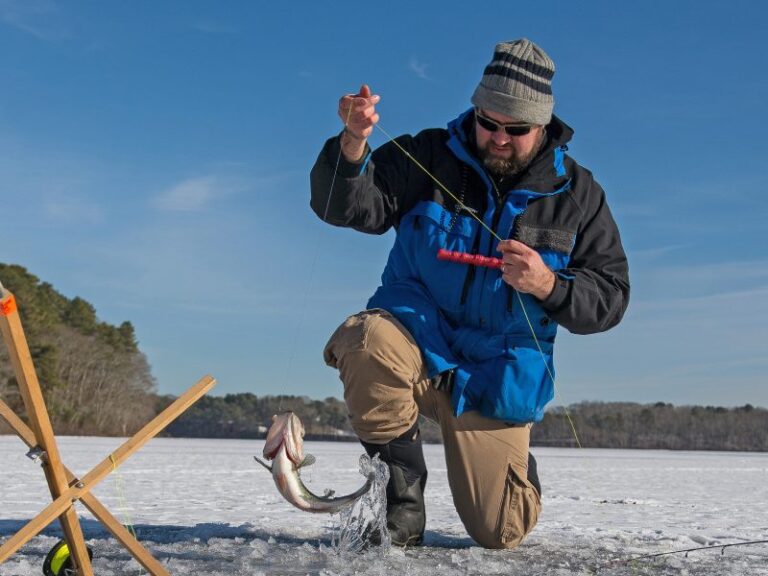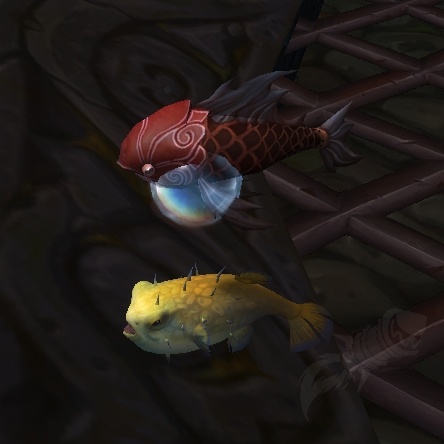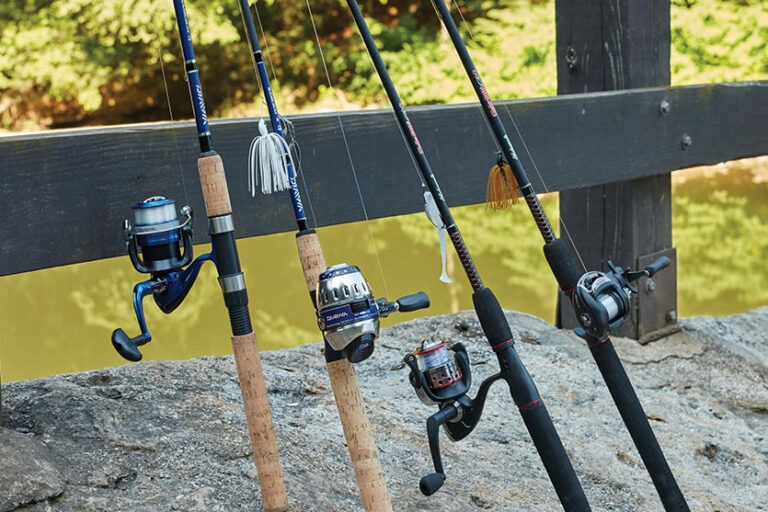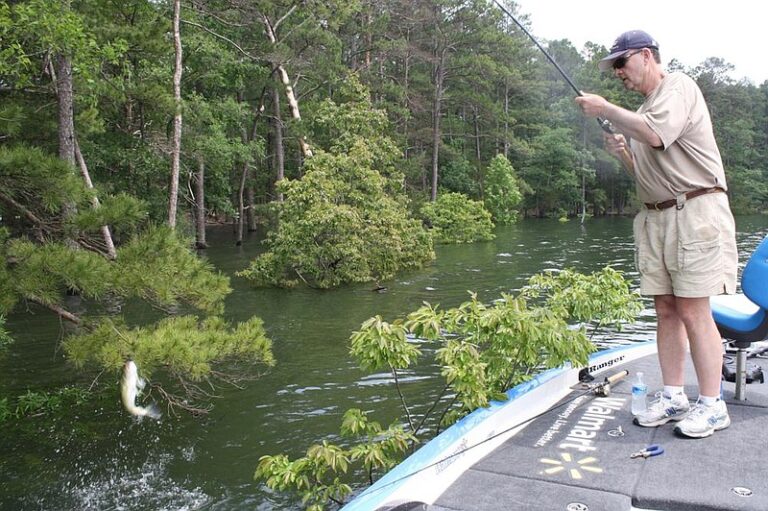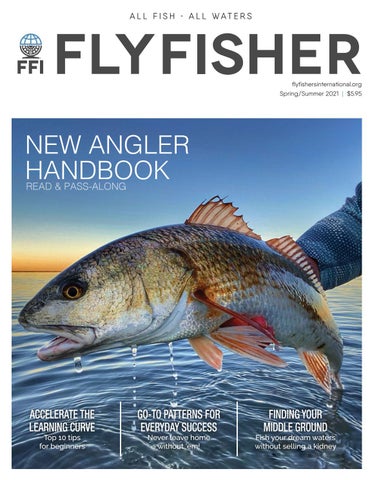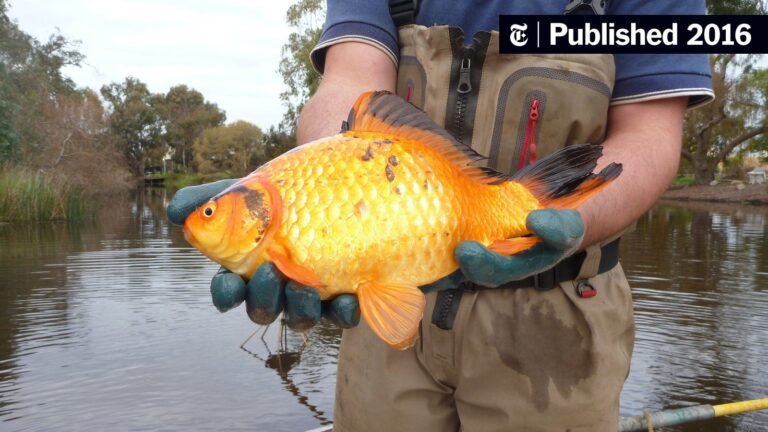Pond fishing can be a fun and rewarding outdoor activity. To make the most of your experience, anglers should consider using live bait, fishing during the early morning or late afternoon, and using light fishing gear.
Pond fishing is an exciting and relaxing pastime for many anglers. Whether you’re looking to catch some fish for dinner or simply enjoy the outdoors, it’s important to know the right tips and techniques for success. Pond fishing requires some basic equipment like a fishing rod, reel, and bait to get started.
However, there are several other factors to consider when fishing in a pond like location, fish behavior, and time of the day. In this article, we’ll discuss some essential tips to help you optimize your experience and increase your chances of catching more fish.

Credit: www.gameandfishmag.com
Understanding The Basics
Understanding The Basics: Tips For Pond Fishing
Fishing is a great way to spend time outdoors and enjoy nature. Pond fishing, in particular, is a popular choice because it is easy to access and requires minimal gear. However, to make the most of your pond fishing experience, you need to understand some of the basics.
The following tips will help you get started:
Importance Of Studying Your Local Pond
Before you start fishing, it is important to study your local pond. This will help you determine which type of fish are present and which bait and lures are best for catching them. Here are some key points to consider:
- Research your local pond online or at a local tackle shop to learn more about the fish species that are present.
- Pay attention to the time of year when you plan to fish, as this can affect fish behavior.
- Observe the pond for a while before you start fishing to see where the fish are biting. Look for signs of activity such as jumping fish or ripples on the water’s surface.
Types Of Fish In The Pond And Their Behavior Patterns
Knowing which type of fish are in the pond and their behavior patterns will help you catch more fish. Here are some key points to consider:
- Different species of fish have different feeding habits, so it is important to study their behavior patterns to determine the best time to fish.
- Some fish are more active in the morning or evening, while others feed throughout the day.
- Some fish prefer shallow water, while others are found in deeper waters.
- Look for areas in the pond where the fish are most likely to congregate, such as near vegetation or structures.
The Right Type Of Fishing Gear And Equipment
To be successful at pond fishing, you need the right gear and equipment. Here are some key points to consider:
- Choose a fishing rod that is appropriate for the type of fish you plan to catch and the size of the pond.
- Invest in high-quality fishing line that is strong and durable.
- Choose lures and bait that are appropriate for the type of fish you plan to catch.
- Wear appropriate clothing and footwear for the weather and terrain.
How To Bait And Tackle Fish Effectively
Bait and tackle are essential components of successful pond fishing. Here are some key points to consider:
- Choose bait and lures that imitate the natural food source of the fish you plan to catch.
- Vary your bait and lures until you find what works best for the fish species in the pond.
- Use a bobber to help you detect when a fish has taken the bait.
- After hooking a fish, be patient and let the fish tire itself out before trying to reel it in.
By understanding the basics of pond fishing and following these tips, you can increase your chances of catching fish and enjoying a great day outdoors. So go ahead and grab your gear and head to your local pond for some relaxing and rewarding fishing!
Techniques For A Successful Fishing Experience
Fishing in a pond can be a relaxing and rewarding adventure. However, it may result in frustration if you don’t know the right techniques. To help you get started on your next pond fishing experience, we’ve put together some tips on pond fishing techniques that will help you find, hook, and catch fish successfully.
Understanding The Right Time To Fish
Pond fishing can be a year-round activity, but there are particular periods of the day and year when fish are more active and, therefore, more likely to bite. Here are some things to keep in mind when planning your next pond fishing trip:
- Early mornings and late afternoons are typically the best times to fish in a pond because the water is cooler, and fish are often more active.
- Depending on the season, fish may prefer different temperatures. During the summer, they may prefer deeper and cooler water. In contrast, during the winter, they may prefer shallow water with more sunlight.
- Keep an eye on the weather. Overcast, cloudy days may be a good time to fish since they can attract fish that prefer darker waters. However, warm and sunny days may require you to fish deeper and closer to overhanging structures.
Choosing The Right Spot On The Pond
Choosing a suitable fishing spot is essential since certain areas of a pond may attract more fish than others. Here are some tips on how to choose an appropriate fishing spot:
- Look for areas with shade, vegetation, rocks, and logs, as they all provide protection for fish and can be ideal feeding areas.
- Structure plays a crucial role in providing habitat for fish species, so the areas at the edge of the pond with steep drop-offs, shallows near submerged structures or structure changes can all attract fish.
- Ponds with currents or inflows/outflows can create areas of greater oxygen and food supply, making them popular gathering and feeding spots for fish.
Casting Techniques For Different Types Of Fish
Different types of fish require different casting techniques. Here are some tips to help you choose the right casting technique based on the fish species present in the pond:
- For panfish like bluegill, sunfish, and crappie, a stop and go method works well with small jigs or spinners to mimic bait bouncing off the bottom.
- For bass, you can use larger lures such as jigs, crankbaits or top-water baits. Cast past structure and work the lure back, alternating between steady and erratic movements.
- Catfish are bottom feeders, so you need to cast near the bottom with baits such as chicken liver or worms in a tight line to detect their bite.
Identifying And Reacting To Different Bites
Catching fish requires you to identify bites as quickly as possible and react accordingly. Here’s how to identify some common bites and react to them:
- For a light, subtle bite, carefully watch for movements of your fishing line, and then gently set the hook. This may mean the fish is nibbling or mouthing the bait, so patience is key.
- A heavy, sudden jerk on your line may mean a more aggressive bite, where a fish is biting down on the bait. You need to respond quickly and firmly set the hook by pulling your fishing rod firmly back.
- Some fish may also use the bait to explore their surroundings (pecking), nudging it with their lips rather than eating it. If you get a lot of nibbling, try different bait, or let the fish run, setting the hook only when they start swimming away.
Patience And Persistence – Two Important Virtues
In addition to knowing the right techniques, patience, and persistence are essential attributes to catching fish successfully. It takes time to learn the skills and to recognize the right signs and signals to get the bite. So, keep in mind that persistence is key, and don’t give up after a couple of casts.
Enjoy the peaceful surroundings and remember that every cast is a new opportunity to catch your next fish.
By following these techniques, you should be well-equipped to have a successful pond fishing experience. Remember to adhere to local regulations and guidelines and have a great time!
Enhancing Your Fishing Game
Pond fishing is a fun and thrilling activity, especially for those who love fishing. However, to get the best out of your pond fishing life, there are advanced tips and techniques that you can use to enhance your fishing game.
In this section, we’ll delve into the advanced tips and techniques for lure presentation, fly fishing in a pond, the importance of catch and release, proper storage and handling of fish, and how to clean and fillet your fish.
Learning Advanced Techniques For Lure Presentation
Whether you’re a pro or beginner, learning advanced techniques for lure presentation can make all the difference in your fishing game. Here are some tips to help you out:
- Always remember to match your lure presentation to the natural food sources in the pond.
- Use a slow and steady technique when fishing near structures such as logs and banks, as fish tend to hide in such areas.
- Experiment with different types of lures, including crankbaits, jigs, and spinners.
- Try to use natural bait such as worms, frogs, or leeches to increase your chances of catching big fish.
Tips For Fly Fishing In A Pond
Fly fishing in a pond can be a challenging but rewarding experience. Here are some tips to help you get the most out of it:
- Use light gear, especially when fishing for small fish, to make your fly more realistic and increase your chances of a successful catch.
- Determine the type of fish you’ll be targeting and match the fly to their natural diet.
- Pay attention to the wind direction and cast your fly with the wind to prevent spooking the fish.
- Control the depth and speed of the fly using a sinking line or a weight, depending on the fish’s depth.
Understanding The Importance Of Catch And Release
Catch and release is an essential fishing practice. It’s crucial to release the fish properly and ensure its survival back into the pond. Here are some tips to help you with catch and release:
- Use barbless hooks to minimize the damage to the fish’s mouth.
- Limit the time that the fish is out of the water, as exceeding ten seconds can cause distress and harm to the fish.
- Revive the fish by holding it upright in the water until it can swim away on its own.
- Follow the local regulations on the number and size of fish you can catch and keep.
Proper Storage And Handling Of Fish
If you catch a fish that you can keep, it’s essential to store and handle it correctly to prevent spoilage. Here are some tips:
- Keep the fish cool, moist, and clean.
- Remove the fish’s guts and rinse its body properly.
- Use ice or a refrigerator to keep the fish fresh.
- Cook or eat the fish as soon as possible.
How To Clean And Fillet Your Fish
Cleaning and filleting your fish can be intimidating, but it’s a simple process. Here are some steps to help you:
- Scale the fish using the back of a knife or a scaler.
- Remove the head by cutting behind the gills.
- Open the stomach cavity to remove the guts.
- Cut along the spine and remove the fillet.
- Rinse and clean the fillet.
- Cut away the skin and any remaining bones.
- Your fish is ready for cooking or refrigeration.
Enhancing your pond fishing experience requires advanced techniques and tips that help you catch more fish and keep them healthy. By following the tips for lure presentation, fly fishing, catch and release, storage and handling of fish, and cleaning and filleting, you’ll be assured of a successful and memorable pond fishing experience.
Conclusion
To sum up, pond fishing is a great opportunity to get outside and enjoy nature while reaping the benefits of catching fish. With these tips in mind, you can increase your chances of success and create unforgettable memories. Remember to choose the right equipment, research the specific species you are targeting, use the right bait, be mindful of your surroundings and remain patient.
At the end of the day, pond fishing is a rewarding activity that anyone can enjoy with some preparation and patience. So, go ahead and plan your next pond fishing trip with confidence. Happy fishing!

